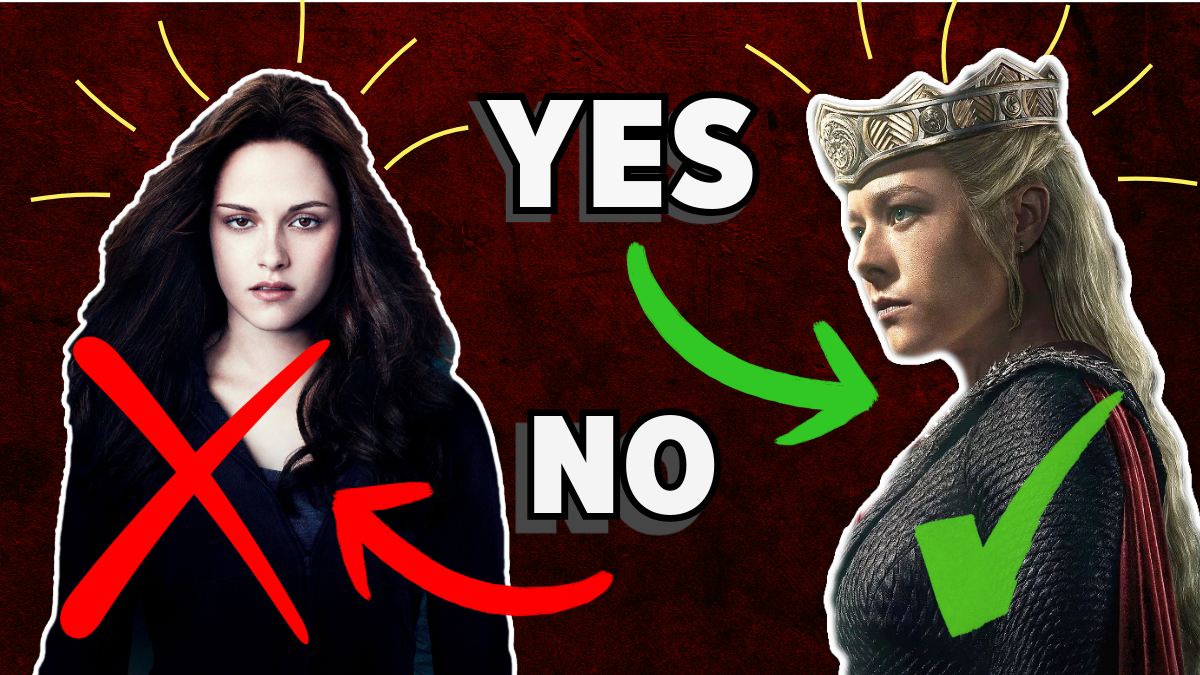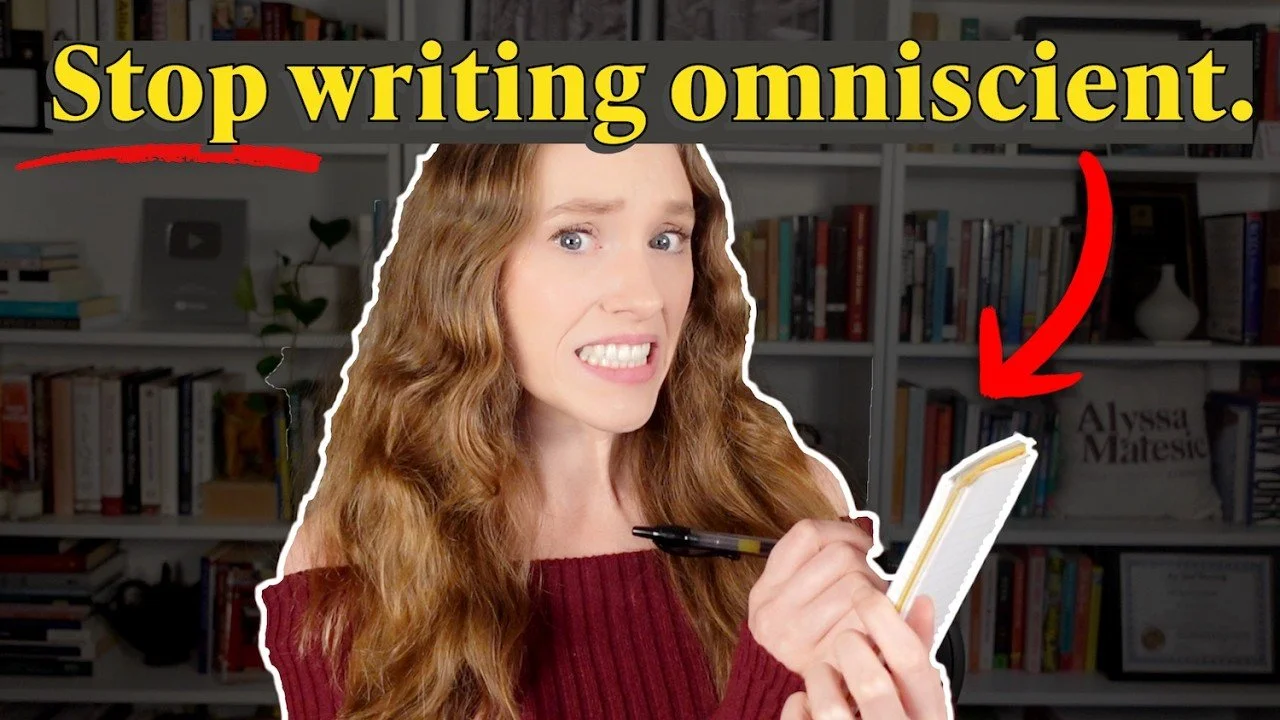5 Character Profile Questions That Will Instantly Bring Your Characters to Life
HIT PLAY OR READ THE POST BELOW:
No matter how strong your plot and writing are, if your characters fall flat, the entire story will fall apart. That's just how important strong characterizations are. The best characters are incredibly compelling, complex, and memorable. They feel like real people we've met in our life or even our friends. Bad characters are lackluster, boring, or annoying.
So, how do you ensure that your characters fall into the first category? I'm going to give you an easy character profile framework to ensure that your characters are well-developed and authentic, which you can apply to your story right here, right now. Make sure that you read all the way to the end because I'm going to test this character profile exercise on two of the most well-known characters in our literary canon. Let's get started.
1. What Do They Want?
First and foremost, what do they want? Arguably, this is the most important question for you to ask about each of your characters: What do they want above all else at this point in their life? Think about that ultimate goal.
Make sure you know what their goal is because if you can't name what your character wants, they are automatically going to fall flat because their actions won't add up to anything. We call this want a strong character objective, and it is critical for all effective characters to have because it allows the reader to get invested in the story. We want to track how the character is making progress toward that goal. We'll be able to understand whether the events of the story are pushing them closer to it or further away from it and will automatically want to continue following along to see if they end up achieving their goal. You are going to create narrative momentum and propulsion that way.
A common character mistake that many writers fall into is making the character objective too vague or nebulous. A strong character objective is concrete and specific. We should be able to say definitively by the end of the story whether that goal has been achieved or not. Ideally, this objective is clear to the reader close to the beginning of the story, so make sure you spend some time thinking critically about the objective of each of your characters. Really work to pinpoint what your character is going to be working toward throughout the entire story.
2. What is Their Biggest Flaw?
The next question to ask as you’re creating a character profile is, what is their biggest flaw? Nobody is perfect, and your characters shouldn't be perfect either. In fact, a character who can do no wrong is going to feel inauthentic and potentially alienate your reader. If you want to create believable, realistic characters, you have to give them flaws.
These flaws could be unflattering personality traits, misbeliefs, or bad habits.
Not only are flaws going to make your characters feel much more interesting and layered, but they're automatically going to create a source of tension. Think about crafting flaws that are in direct contrast to the objective that you just outlined. How can you create a flaw that gets in the way of your character achieving what they want? This will immediately create narrative conflict because it raises the question, is the character going to be able to overcome their flaw to achieve that thing they want?
For example, if your character's goal is to reconcile with a loved one who is estranged, then a flaw they have could be that they are prideful, and their inability to admit that they are wrong or apologize can get in the way of them restoring that relationship. In order to achieve their goal, they're going to first have to confront their flaw, which is their pride, which is what creates a compelling plot.
3. What is Their Deepest Secret?
The next question to ask as you’re crafting your character profile is, what is their deepest secret? Every complex, compelling character has a secret—something they are keeping close to their chest, something that would feel shattering if it were to come out, something that they're personally reckoning with over the course of the story.
Whether they're a protagonist, antagonist, or a secondary character, if they expose to us the deepest, darkest parts of themselves, we're automatically going to have a deeper connection to them and see them as more layered. Even if your character's secret doesn't end up influencing the plot in a meaningful way, it is still worth articulating for yourself because it is going to create a source of internal conflict for them, influence their decisions, and create depth.
For instance, the character's actions in the story will likely be influenced by their desire to keep that secret hidden. It could drive them to make difficult or morally ambiguous decisions, and understanding those hidden motivations will make them feel so much more nuanced and believable.
4. How Did They Get Here?
The next question to ask to craft compelling, complex characters is, how did they get here? Once you know what your character wants, what flaw is getting in the way of them getting it, and the secret that they are holding deep inside of them, it's time to think about what got them to this point.
Why exactly do they want what they want? When did that objective take hold for them? How did they end up setting their sights on this particular goal? Also, explore where their flaws or misbeliefs came from. What past experiences shaped their worldview or made them that way? Think about when they began to hide their deepest secret. What circumstances led to them having that secret, and why did they feel the need to keep it concealed?
All of these answers should feed into the character’s backstory, which encompasses all of their life leading up to the point at which the story starts. What are those key transformative experiences that they had? What events led them to their current position? It should be clear to us how their backstory has influenced their current desires, fears, motivations, flaws, and secrets. Knowing their backstory is going to help us understand the why behind their decisions in the story, and it's key to making them a complex, fully realized character who's had a life before the story began and will have a life after the end of it.
5. How Will They Change?
Speaking to that point, that brings me to the final question to ask as you’re crafting your character profile, which is, how will they change? This is the question that is frequently omitted from other character profile exercises, but it is absolutely critical to craft a fully developed and rounded character.
If you've completed this character profile exercise so far, you know really well where your character currently stands in life—that's what the first three questions focused on. You also know what led them to this point, which is what the question about backstory related to. Now, we need to think about where you want your character to land at the end of the story.
We crave seeing characters grow and change due to the events of the story. If we invest hours of our time into following a plot, we expect to get some kind of emotional payoff and see a transformative arc, so make sure that you are delivering that.
Whether or not the character achieves that goal they set out to in the beginning, regardless, they should still have changed in some way. How are they different now than when we first met them? What has materially changed about their life or their outlook on life? How have their desires, fears, or motivations shifted due to what they went through over the course of the story?
Character Profile Examples
All right, now that we know the five keys to crafting a complex character profile, let's put this exercise in action with two well-known characters from the literary canon.
Katniss Everdeen
First up is Katniss Everdeen from The Hunger Games.
What does she want? To provide for and protect her family, especially her younger sister. She wants to survive the games so she can return to care for her family.
What's her biggest flaw? Her difficulty in trusting others and how she keeps herself emotionally guarded due to the harsh conditions of her life.
What's her deepest secret? Her conflicted feelings over Peeta—she can't fully sort out whether she has genuine feelings for him or if it's part of the act she must put on to survive the games.
How did she get here? She grew up impoverished in District 12 and had to take on the role of provider for her family after her father's death.
How will she change? By the end of the story, she will become more aware of the political ramifications of her defiance and understand that she's become a symbol of the resistance. She'll set herself up to become a future leader.
Rhaenyra Targaryen
Now, let's try out this same character profile exercise with Rhaenyra Targaryen from George R.R. Martin's Fire and Blood and HBO's House of the Dragon.
What does she want? To secure her place as the rightful heir to the Iron Throne and be recognized as the legitimate ruler of the Seven Kingdoms.
What's her biggest flaw? Her impulsiveness and recklessness, which puts her in precarious situations both personally and politically.
What's her deepest secret? Her affair with Harwin Strong and the true parentage of her children.
How did she get here? Rhaenyra was named heir to the Iron Throne by her father, who broke tradition in naming a female successor. This incited conflict across the realm, and Rhaenyra is affected by the fact that her mother died in childbirth.
How will she change? By the end of the story, she will become more hardened and resolute due to the challenges that she faces trying to secure the Iron Throne, and we'll see her become more ruthless and strategic in her plans to continue pursuing her goal.
Now it’s your turn! Try completing this character profile exercise for one of the characters in your story. If you can answer all five of these questions for your most important characters, you can feel confident that readers will find them compelling, complex and worth reading about.
Thanks so much for reading, and happy writing!






